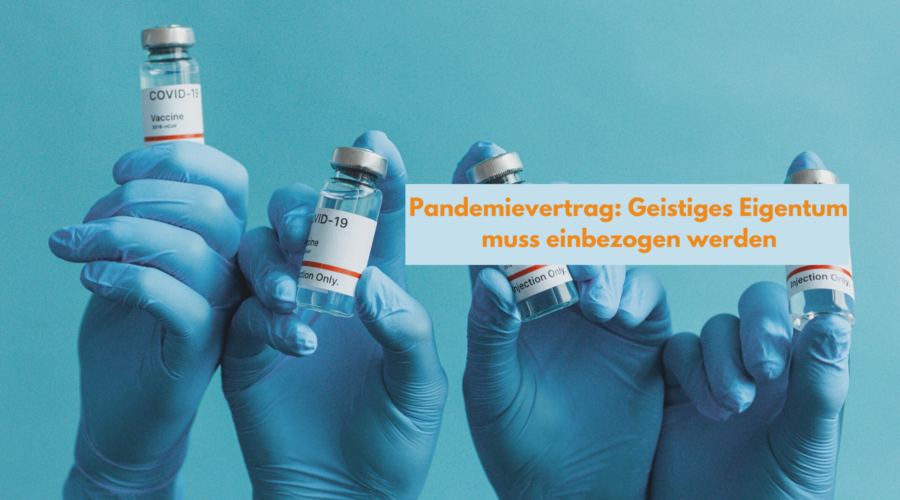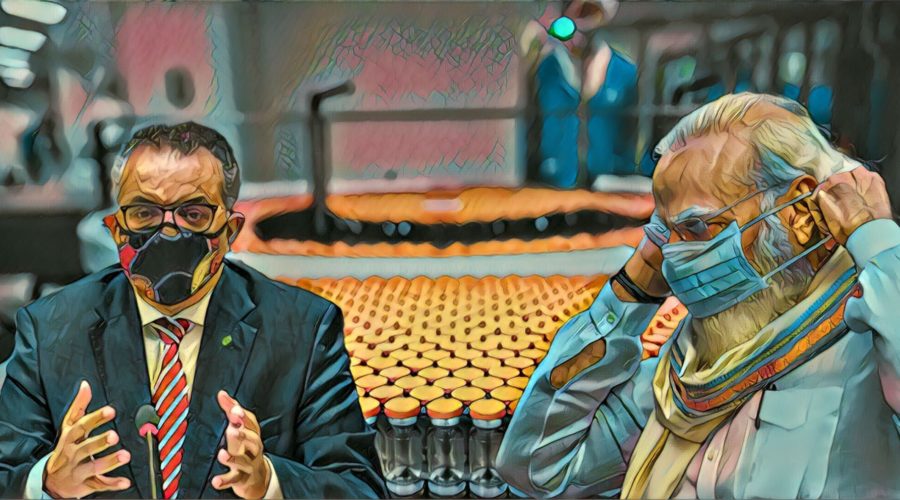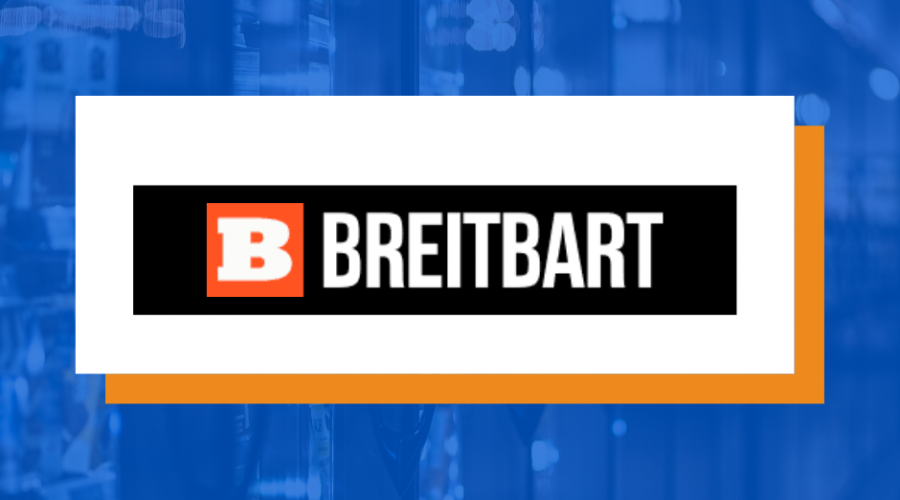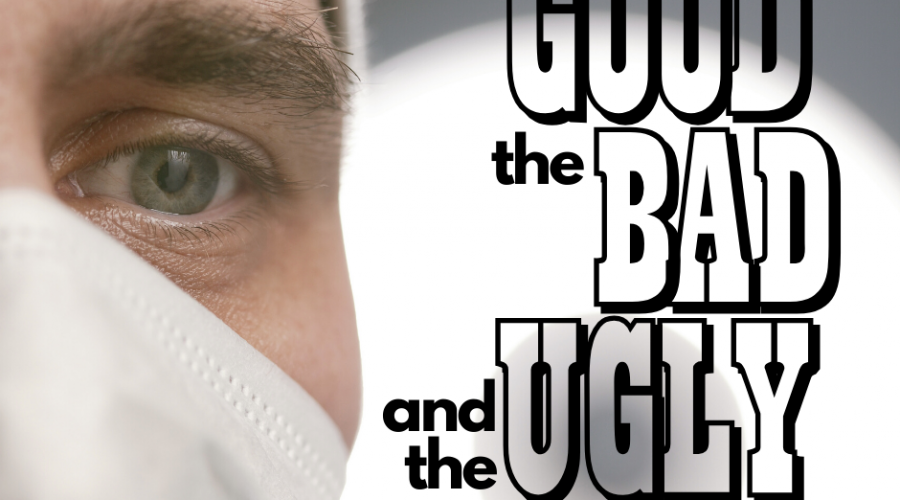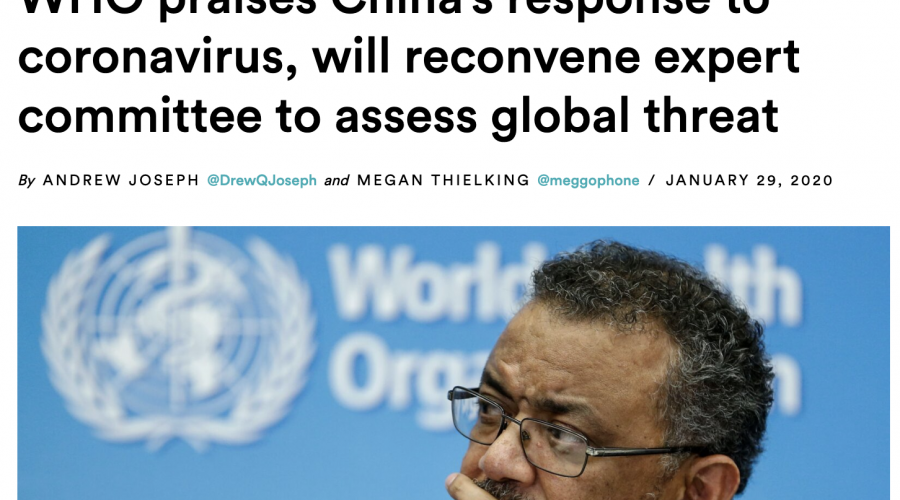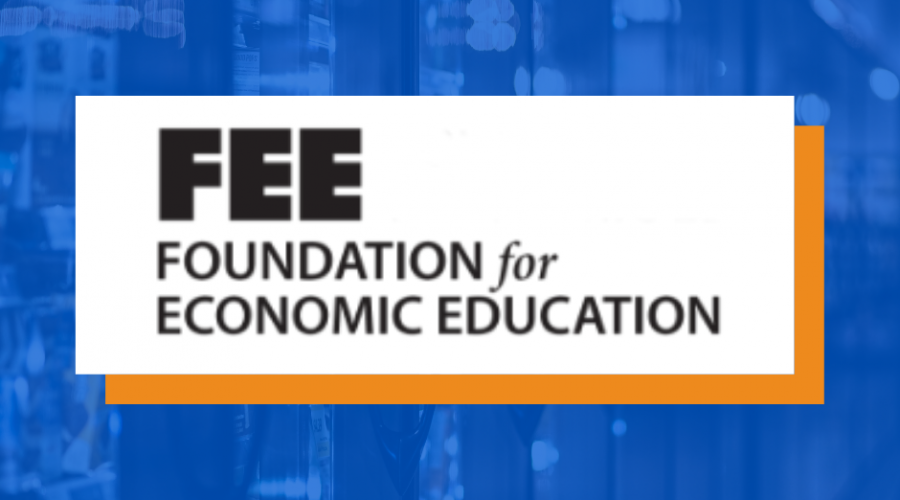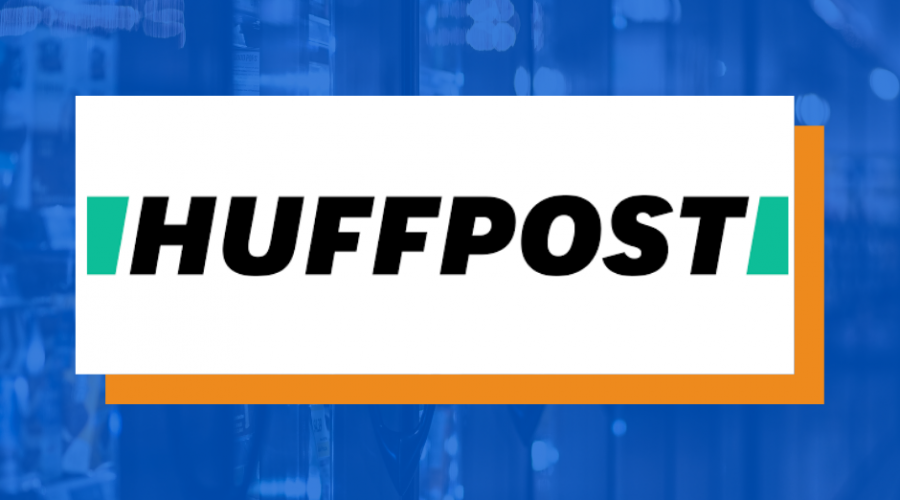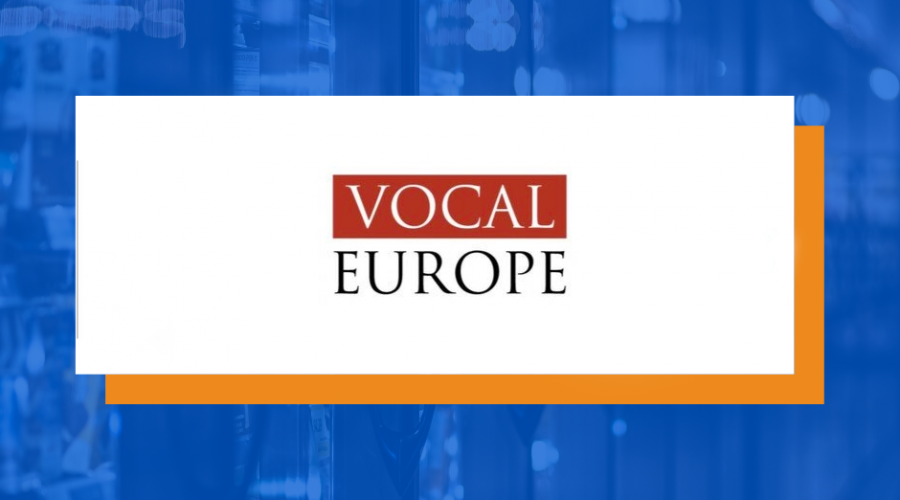Pandemievertrag: Geistiges Eigentum muss einbezogen werden
Die Weltgesundheitsorganisation (WHO) wird in Kürze Verhandlungen über einen so genannten Pandemievertrag aufnehmen, der im Rahmen der Verfassung der Weltgesundheitsorganisation die Pandemieprävention, -vorsorge und -reaktion stärken soll. Der Generaldirektor der WHO, Dr. Tedros Adhanom Ghebreyesus, sieht die Entscheidung der Weltgesundheitsversammlung historisch, von entscheidender Bedeutung für ihren Auftrag und als eine einmalige Gelegenheit, die globale Gesundheitsarchitektur zu stärken, um das Wohl aller Menschen zu schützen und zu fördern.
“Die COVID-19-Pandemie hat die vielen Schwachstellen im globalen Pandemieschutzsystem aufgezeigt: die am stärksten gefährdeten Menschen werden nicht geimpft, das Gesundheitspersonal hat nicht die nötige Ausrüstung, um seine lebensrettende Arbeit zu verrichten, und der “Ich zuerst”-Ansatz verhindert die globale Solidarität, die zur Bewältigung einer Pandemie erforderlich ist”, so Dr. Tedros.
Zu seinen Ansichten kommt, dass einige NGOs und WHO-Mitgliedsländer der Meinung sind, dass Patente in diesem Vertrag nicht berücksichtigt werden sollen. Sie sind der Auffassung, dass das Recht das geistigen Eigentums die Zugänglichkeit von Medikamenten und lebenswichtigen Impfstoffen beeinträchtigen.
Das Rennen zu einer wirksamen COVID-Impfung hat einen privaten Wettbewerb zwischen den Impfstoffherstellern in einem noch nie dagewesenen Ausmaß und mit einer bisher ungesehenen Schnelligkeit ausgeöst. Obwohl alle Impfstoffe medizinische Bezeichnungen haben, kennt der normale Patient sie eher unter dem Namen eines Pharmaunternehmens; so weit geht die Assoziierung. Die Tatsache, dass zwei deutsche Wissenschaftler, Dr. Uğur Şahin und Dr. Özlem Türeci, maßgeblich an der Entwicklung des Pfizerimpfstoffs beteiligt waren, sollte Deutschland stolz auf seine Leistungen bei medizinischen Innovationen machen.
Bei der pharmazeutischen Forschung und der Entwicklung von Impfstoffen spielen die Leidenschaft von Wissenschaftlern und die bürgerliche Pflicht von Unternehmen eine wichtige Rolle. Tatsächlich sollten wir diesen Effekt nicht schmälern, denn die meisten Pharmaunternehmen haben jahrzehntelang lebenswichtige Medikamente zum Selbstkostenpreis an Entwicklungsländer abgegeben. Allerdings müssen wir auch verstehen, dass Investoren und Unternehmensvorstände die Chance auf eine Rendite sehen müssen, um die immensen Kosten der medizinischen Forschung zu decken. Patente erfüllen diese Erwartung, indem sie einen rechtlichen Rahmen schaffen, der es Unternehmen ermöglicht, medizinische Innovationen zu schaffen, in der Gewissheit, dass diese nicht gestohlen werden können.
Während der Entwicklung der Impfstoffe gegen COVID-19 haben Pharmaunternehmen wichtige patentierte Informationen mit Wettbewerbern ausgetauscht, um schnellere Ergebnisse zu erzielen – ein Informationsaustausch, der durch einen umfassenden Rechtsschutz ermöglicht und organisiert wird. Ohne diesen Schutz würden die Unternehmen zögern, mit Konkurrenten zusammenzuarbeiten. Patente ermöglichten auch die Zusammenarbeit zwischen Regulierungsbehörden, einschließlich Vereinbarungen über den Vorabkauf, die sich als entscheidend für die Pandemievorsorge erwiesen haben.
Die den Gegnern von Patenten zugrunde liegende Annahme, dass diese die Geschwindigkeit der Entwicklung und Verbreitung von Arzneimitteln verringern, ist falsch. Langsame Lieferketten und regulatorische Hürden sind ein unnötiger und tödlicher Aspekt der Impfstoffverteilung. Wir brauchen ein harmonisiertes Regulierungssystem für die Zulassung und den Vertrieb von Impfstoffen sowie einen deutlichen Abbau von Handelsschranken. Wenn sich die Unternehmen neben der komplexen Entwicklung von Impfstoffen auch noch durch den Regulierungsdschungel von 51 Notfallzulassungswegen in 24 Ländern kämpfen müssen (zu normalen Zeiten wären es 190 verschiedene Zulassungsverfahren gewesen), dann könnten viele Entwickler zu dem Schluss kommen, dass es sich einfach nicht lohnt, die Kosten für die Einhaltung der Vorschriften zu tragen, um eine medizinische Lösung zu finden.
Spricht sich die WHO für die Notwendigkeit einer stärkeren globalen Zusammenarbeit zur Verbesserung der Pandemiebereitschaft aus? Auf jeden Fall. Bedeutet dies, dass die Länder das Konzept des geistigen Eigentums aufgeben sollten? Ganz und gar nicht. Die Schaffung einer Zukunft der medizinischen Innovation erfordert Garantien und Regeln, die gleichermaßen gelten. Die COVID-19-Pandemie hat gezeigt, dass die Forschung und Innovation vieler privater Akteure uns geholfen hat, die Krise zu überstehen. So sollte es auch bleiben.
